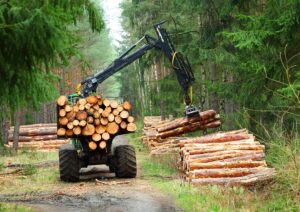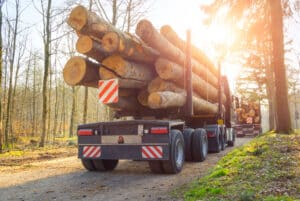Career Advice
This Article Talks About:
Home » Everything You Need To Know » What qualifications do you need to become a forester?
What qualifications do you need to become a forester?
https://www.whatjobs.com/info/career-advice/everything-you-need-to-know/what-qualifications-do-you-need-to-become-a-forester

Forestry is a profession that focuses on the management, conservation, and sustainable use of forests and woodlands.
As the guardians of these vital ecosystems, the foresters play a crucial role in ensuring that forests continue to provide their benefits to humans and the environment.
But what qualifications are necessary to embark on this rewarding career?
Educational Background
- Bachelor’s Degree: The most fundamental qualification for a forester is a bachelor’s degree in forestry. This program provides a comprehensive understanding of forest ecosystems, silviculture, forest measurements, and forest policy.
- Courses often cover topics like dendrology (study of trees), forest ecology, and forest management. Some universities offer specialized tracks within the forestry degree, such as urban forestry, forest biology, or forest engineering. These specializations allow students to tailor their education to specific career goals.
- Advanced Degrees: While a bachelor’s degree is sufficient for many entry-level positions, some foresters opt for a master’s or even a doctoral degree. Advanced degrees can be beneficial for those looking to specialize in research, teach at the university level, or take on leadership roles in large forestry organizations.
Practical Experience
Hands-on experience is invaluable in the forestry profession.
Many degree programs incorporate fieldwork, internships, or co-op opportunities to give students real-world exposure.
This experience helps budding foresters understand forest dynamics, learn to use specialized equipment, and develop problem-solving skills.
Professional Certification and Licensure
In many regions, becoming a certified or licensed forester is either mandatory or highly recommended.
The requirements for certification vary but typically include:
- A degree from an accredited forestry program.
- A certain number of years of professional experience.
- Passing a comprehensive examination.
Certification demonstrates a forester’s commitment to ethical and professional standards.
It can also enhance career prospects and earning potential.
Continuous Learning
The field of forestry is continually evolving, with new research, technologies, and best practices emerging regularly.
As such, foresters must be committed to lifelong learning.
This can be achieved through workshops, seminars, and courses. Many professional forestry associations also offer continuing education opportunities for their members.
Soft Skills and Personal Qualities
While formal education and certifications are crucial, certain personal qualities and soft skills can significantly enhance a forester’s effectiveness:
- Observation Skills: Foresters must be keen observers, able to notice changes in forest health, growth patterns, and potential threats.
- Communication Skills: Whether it’s liaising with stakeholders, educating the public, or leading a team, clear communication is vital.
- Problem-solving: Forest management often involves addressing complex challenges, from pest infestations to balancing ecological and economic interests.
- Physical Stamina: Forestry often requires fieldwork in various weather conditions, demanding physical resilience.
- Passion for Nature: A genuine love for the outdoors and a commitment to conservation can be the driving force behind a successful forestry career.
Specialized Training
Depending on the specific role or area of focus, a forester might need additional training. For instance:
- Wildfire Management: Foresters involved in fire management might need training in fire behavior, control techniques, and safety protocols.
- Urban Forestry: Those working in urban settings might benefit from courses in landscape design, public policy, or community engagement.
- Forest Technology: As technology plays an increasingly significant role in forestry, skills in Geographic Information Systems (GIS), remote sensing, or drone operation can be advantageous.
Networking and Professional Associations
Joining professional forestry associations can provide numerous benefits, from networking opportunities to resources for professional development.
Associations often host conferences, publish journals, and offer scholarships. Being an active member can help a forester stay updated and connected with peers.
Ethical Considerations
Foresters often grapple with decisions that have long-term ecological, social, and economic implications. A strong ethical foundation is essential.
Many professional associations have codes of ethics that members are expected to uphold, emphasizing sustainable and responsible forest management.
Final Thoughts
Becoming a forester is a journey that combines formal education with practical experience, continuous learning, and a deep commitment to the stewardship of our planet’s forests.
While the path might be demanding, the rewards—both personal and professional—are immense. As the challenges of climate change, habitat loss, and global sustainability intensify, the role of foresters in guiding the future of our forests becomes ever more critical.















